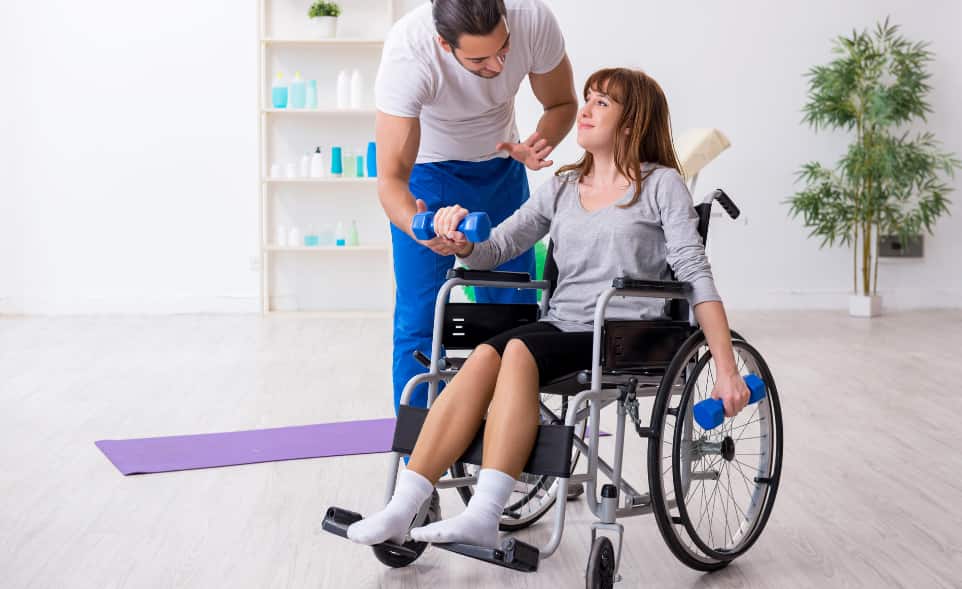Fitness and well-being are deeply personal journeys, and for disabled individuals, disability personal training can be challenging, but also rewarding. These tailored exercise routines have the remarkable ability to cater to specific disabilities, fostering improvements in mobility, cardiovascular fitness, strength, and endurance. Let’s examine.
Tailoring Exercise Routines for Different Disabilities
Adaptive workouts are not a one-size-fits-all solution; they are customized to suit individual needs and challenges. Meanwhile, those with visual impairments may rely on auditory cues and tactile feedback. Before embarking on any exercise program, it is imperative to consult with healthcare professionals who can offer personalized guidance.
Addressing Mobility Challenges
Wheelchairs, walkers, or prosthetics can substantially enhance mobility. Additionally, strength training and flexibility exercises, such as seated stretches or chair yoga, play pivotal roles in maintaining or regaining mobility. To prevent strain or injury during workouts, it is crucial to maintain proper posture and body mechanics.
Enhancing Cardiovascular Fitness
Cardiovascular fitness is a cornerstone of overall health, and individuals with disabilities can engage in tailored cardio exercises. Seated cycling and water-based workouts are excellent choices for those with mobility challenges. Gradually increasing the intensity and duration of these exercises can yield significant cardiovascular benefits.
Building Strength and Endurance
Strength and endurance training are fundamental components of any fitness regimen. Adaptive strength exercises, including resistance band workouts and modified weightlifting, can help individuals build muscle and boost endurance. Ensuring proper form and adhering to the principle of progressive overload is key to achieving results while preventing injury.

Balancing Safety and Progression
Safety takes precedence in disability personal training. Trainers assume a vital role in monitoring and adjusting exercises as necessary to ensure safety. Prioritizing the avoidance of overexertion and injury is paramount. Maintaining open communication with trainers regarding any discomfort or concerns during workouts is essential.
Overcoming Psychological Barriers
Commencing a workout routine can be psychologically challenging for anyone, but individuals with disabilities may encounter unique hurdles. Cultivating confidence and sustaining motivation are pivotal strategies for success. The psychological benefits of regular exercise, such as improved mood and increased self-esteem, can serve as potent motivators.
Conclusion
Disability personal training, with its emphasis on adaptive workouts, can bring meaningful change to the lives of individuals with disabilities. The key to a successful fitness journey lies in finding qualified trainers who comprehend the unique requirements of this community.
Whether you are embarking on your fitness journey or seeking to elevate your current routine, the potency of adaptive workouts can significantly enhance your overall well-being.

 Home
Home





